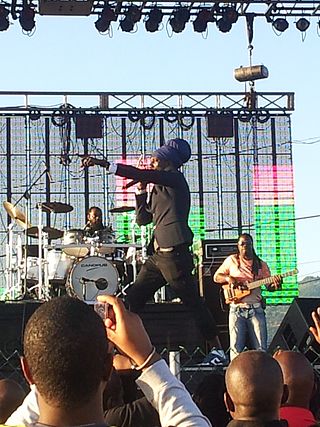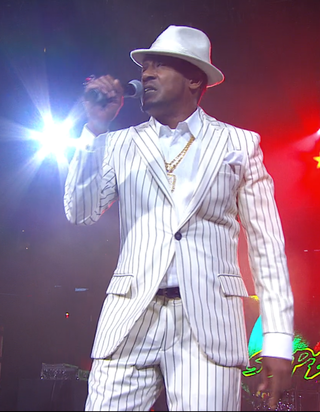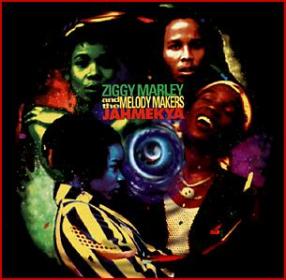
Reggae is a music genre that originated in Jamaica in the late 1960s. The term also denotes the modern popular music of Jamaica and its diaspora. A 1968 single by Toots and the Maytals, "Do the Reggay", was the first popular song to use the word reggae, effectively naming the genre and introducing it to a global audience. While sometimes used in a broad sense to refer to most types of popular Jamaican dance music, the term reggae more properly denotes a particular music style that was strongly influenced by traditional mento as well as by American jazz and rhythm and blues, and evolved out of the earlier genres ska and rocksteady. Reggae usually relates news, social gossip, and political commentary. It is instantly recognizable from the counterpoint between the bass and drum downbeat and the offbeat rhythm section. The immediate origins of reggae were in ska and rocksteady; from the latter, reggae took over the use of the bass as a percussion instrument.

Mark Anthony Myrie, known professionally as Buju Banton, is a Jamaican reggae dancehall musician. He is one of the most significant and well-regarded artists in Jamaican music. Banton has collaborated with many international artists, including those in the hip hop, Latin and punk rock genres, as well as the sons of Bob Marley.
Roots reggae is a subgenre of reggae that deals with the everyday lives and aspirations of Africans and those in the African Diaspora, including the spiritual side of Rastafari, black liberation, revolution and the honouring of God, called Jah by Rastafarians. It is identified with the life of the ghetto sufferer, and the rural poor. Lyrical themes include spirituality and religion, struggles by artists, poverty, black pride, social issues, resistance to fascism, capitalism, corrupt government and racial oppression. A spiritual repatriation to Africa is a common theme in roots reggae.

Rodney Basil Price, known as Bounty Killer, is a Jamaican reggae and dancehall deejay. AllMusic describes him as "one of the most aggressive dancehall stars of the '90s, a street-tough rude boy with an unrepentant flair for gun talk". He is considered one of the best dancehall lyricists of all time.

Lincoln Barrington "Sugar" Minott was a Jamaican reggae and dancehall singer, producer and sound-system operator.
Dancehall is a genre of Jamaican popular music that originated in the late 1970s. Initially, dancehall was a more sparse version of reggae than the roots style, which had dominated much of the 1970s. In the mid-1980s, digital instrumentation became more prevalent, changing the sound considerably, with digital dancehall becoming increasingly characterized by faster rhythms. Key elements of dancehall music include its extensive use of Jamaican Patois rather than Jamaican standard English and a focus on the track instrumentals.

Miguel Orlando Collins, known by his stage name Sizzla Kalonji or Sizzla, is a Jamaican reggae musician. He is one of the most commercially and critically successful contemporary reggae artists and is noted for his high number of releases. As of 2018 he has released 56 solo albums.

William Anthony Maragh, also known as Super Cat, is a Jamaican deejay who achieved widespread popularity during the late 1980s and early 1990s dancehall movement. His nickname, "Wild Apache", was given to him by his mentor Early B. Super Cat is considered one of the greatest deejays in the history of the Jamaican dancehall scene.
Bobby Dixon, known as Bobby Digital, was a Jamaican reggae and dancehall producer. He was given his nickname "Bobby Digital" because King Jammy, with whom he worked in the mid-1980s, had begun experimenting with digital rhythms at around the same time. He owned the Digital B label, and among the artists with hits on the label are Shabba Ranks and Sizzla. He has influenced reggae artists such as Admiral Tibet.

Keith Blair, better known by the stage name Anthony B, is a Jamaican DJ and member of the Rastafari movement.

Jahmekya is a studio album by the reggae group Ziggy Marley and the Melody Makers, released in 1991.

More Fire is an album by reggae and dancehall artist Capleton, released in 2000. The album is a mix of dancehall and reggae, and contains the hit singles "Who Dem" and "Jah Jah City".

Rise to the Occasion is reggae, dancehall artist Sizzla's eighteenth studio album. The album was released on September 30, 2003. The album is a mix of dancehall and reggae, with singles such as "Rise to the Occasion" and "Give Me a Try".
Reggae fusion is a fusion genre of reggae that mixes reggae and/or dancehall with other genres, such as pop, rock, hip-hop/rap, R&B, jazz, funk, soul, disco, electronic, and Latin music, amongst others.
Steely & Clevie was a Jamaican dancehall reggae production duo that was composed of members Wycliffe Johnson and Cleveland Browne. The duo worked with artists such as the Specials, Gregory Peck, Bounty Killer, Elephant Man, and No Doubt.

Unchained Spirit is a studio album by the dancehall/reggae artist Buju Banton, released in 2000. It was his first and only album to be released on the ANTI- record label, an imprint of Epitaph Records.

"You Don't Love Me " is a song by Jamaican recording artist Dawn Penn, released in February 1994 by Big Beat as the first single from her first studio album, No, No, No (1994). The song's lyrics are credited to Penn, Bo Diddley and Willie Cobbs, and production was handled by Steely & Clevie.

I-Testament is a studio album by reggae/dancehall artist Capleton. It was released in 1997 via Def Jam. The album contains guest appearances from Q-Tip, Sizzla, Big Youth, and D.V. Alias Khrist.
Kemar McGregor, also known by his nicknames, DJ Flava and Flava McGregor, is a Jamaican-American pop reggae producer. He has recorded and produced music for the most renowned artists in the music industry, including Sinéad O'Connor, Musiq Soulchild, Syleena Johnson, Snoop Dogg/Snoop Lion, Jon Secada, Maxi Priest, Sizzla, Marcia Griffiths, Beenie Man, Wayne Wonder, Buju Banton, Capleton, Sanchez, Freddie McGregor, Luciano, Sugar Minott, Barrington Levy, Gregory Isaacs, Morgan Heritage, Half Pint, Tanya Stephens, Gyptian, Cas Haley, Beres Hammond, Glen Washington, Etana and Cocoa Tea, among many others. McGregor is the owner and chief executive officer of FM Records.

John Alexander Crawford, professionally known as JonFX, is a music producer from St. Andrews, Jamaica. He has worked with dancehall and reggae artists Shabba Ranks, I Wayne, Vybz Kartel, Gyptian and Akon, as well as late rapper XXXTentacion. In June 2018, he was appointed as a governor on the board of the Florida Grammy Chapter.














